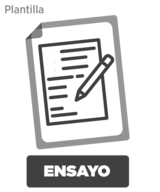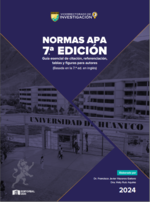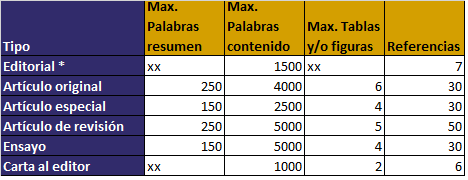Abya Yala and the Andean worldview
DOI:
https://doi.org/10.37711/desafios.2023.15.1.421Keywords:
epistemicide, worldview, nature, Abya Yala, AndeanAbstract
The objective of this work is to understand and reflect upon Abya Yala and the Andean worldview, which underwent a cultural development different from the Western one, interrupted by the Spanish invasion that imposed its language,
customs and god. The term Abya Yala is designated to the American continent by the Kuna people, accepted by the organization of indigenous peoples, and carries the meaning of "Land in full maturity” or “Land of vital blood." The worldview of these peoples was marked by the conservation of nature, as they considered themselves part of it. This
starting point establishes a harmonious relationship between inhabitants and nature. We conclude that Andean peoples
are in a process of reconstructing the Andean worldview, valuing their tradition, language, and ancestral customs, in the face of the imposition of a dominant Eurocentric worldview that attempted to strip away our ancestral knowledge and wealth.
Downloads
References
Achig, D. (2015). Interculturalidad y cosmovisión andina. Revista Médica HJCA, 7(1), 88-92. https://doi.org/10.14410/2015.7.1.aa.19
Beals, R., y Hoijer, H. (2000). Religión. En F. Botero, y L. Endara (Rec.). Mito, rito, símbolo. Lecturas antropológicas (pp. 5-34). Instituto de Antropología.
Botero, F., y Endara, L. (2008). Mito, rito, símbolo. Lecturas antropológicas. Instituto de Antropología. https://digitalrepository.unm.edu/cgi/viewcontent.cgi?article=1329&context=abya_yala
Carranza, H. M., Tubay, M. F., Espinoza, H. B., y Chang, W. L. (2021). Saberes ancestrales: una revisión para fomentar el rescate y revalorización en las comunidades indígenas de Ecuador. Journal of Science and
Research, 6(3), 112-128.
Ceberio, M., y Watzlawink, P. (1998). La Construcción del Universo. Herder.
Comisión Económica para América Latina y el Caribe. (2017). Los pueblos indígenas en América (Abya Yala). Desafíos para la igualdad en diversidad. CEPAL.
Delgado, Y., Flores, W., y Ramírez, C. (2021, 16 de noviembre). Teología Abya Yala. Identidad, descendencia y frontera. Publica Theology in Public Life. https://publicatheology.org/2021/11/16/teologia-abya-yala-identidad-descendencia-y-frontera/
Estermann, J. (2008). La flosofía andina del P. Josef Estermann. Solar, 4(4), 231-247.
FSC Indigenous Fountation. (2021, 12 de noviembre). La tecnología y los conocimientos ancestrales de las mujeres indígenas. FSC Indigenous Foundation. https://www.fscindigenousfoundation.
org/es/indigenous-womens-ancestral-knowledge-and-technology/
Gargallo, F. (2014). Feminismo desde Abya Yala. Ideas y proposiciones de las mujeres de 607 pueblos en nuestra América. Corte y Confección.
Goldstern, D. (2022, 14 de marzo). Amaru "historia del dragón andino". La deidad "serpiente" Inca. Codigoocuto.
https://codigooculto.com/historia/amaru-historia-dragon-andino/
Herrera, G. (2020). El núcleo ético mítico de la flosofía en Abya Yala. LiminaR. Estudios Sociales y Humanísticos, 18(1), 82-96. https://doi.org/http://dx.doi.org/10.29043/liminar.v18i1.728
Jaramillo, L. G. (2003). ¿Qué es epistemología? Mi mirar epistemológico y el progreso de la ciencia.
Montemayor, C. (2000). He venido a contradecir. La cosmovisión de los pueblos indígenas actuales. Desacatos
(5), 95-106. ttps://doi.org/10.29340/5.1224
Moreno, A., Hortigüela, D., y Carter, B. (2019). La escuela y el deporte como "Epistemicidios" de lo lúdico en las culturas de Abya Yala. Cultura, ciencia y deporte, 61-69. https://dialnet.unirioja.es/servlet/articulo?-
codigo=6881846
Naciones Unidas. (1948, 10 de diciembre). La Declaración Universal de los Derechos Humanos. Naciones
Unidas. https://www.un.org/es/about-us/universal-declaration-of-human-rights
Poma, F., Mauricio, M. D., y Salinas, J. (2021). Alfabetización trilingüe en el Perú. https://goo.su/0tBRlXW
Valencia, N. (1999). La pachamama: Revelación del Dios creador. Ediciones Abya Yala.
Villena-Pacheco, A. E. (2022). Cosmovisión Andina de la vida, la salud y la enfermedad. Fondo editorial Comunicacional. https://hdl.handle.net/20.500.12971/75

Published
How to Cite
Issue
Section
License
Copyright (c) 2023 Angelica Carhuapoma Gamboa

This work is licensed under a Creative Commons Attribution 4.0 International License.
a. Los autores conservan los derechos de propiedad intelectual (copyright) de las obras publicadas, cediendole a la revista el derecho de primera publicación.
b. Los autores retienen sus derechos de marca y patente, y también sobre cualquier proceso o procedimiento descrito en el artículo.
c. Los autores retienen el derecho de compartir, copiar, distribuir, ejecutar y comunicar públicamente el artículo publicado en la RD (por ejemplo, colocarlo en un repositorio institucional o publicarlo en un libro), con un reconocimiento de su publicación inicial en la RD.
d. Los autores retienen el derecho a hacer una posterior publicación de su trabajo, de utilizar el artículo o cualquier parte de aquel (por ejemplo: una compilación de sus trabajos, notas para conferencias, tesis, o para un libro), siempre que indiquen la fuente de publicación (autores del trabajo, revista, volumen, número y fecha).























